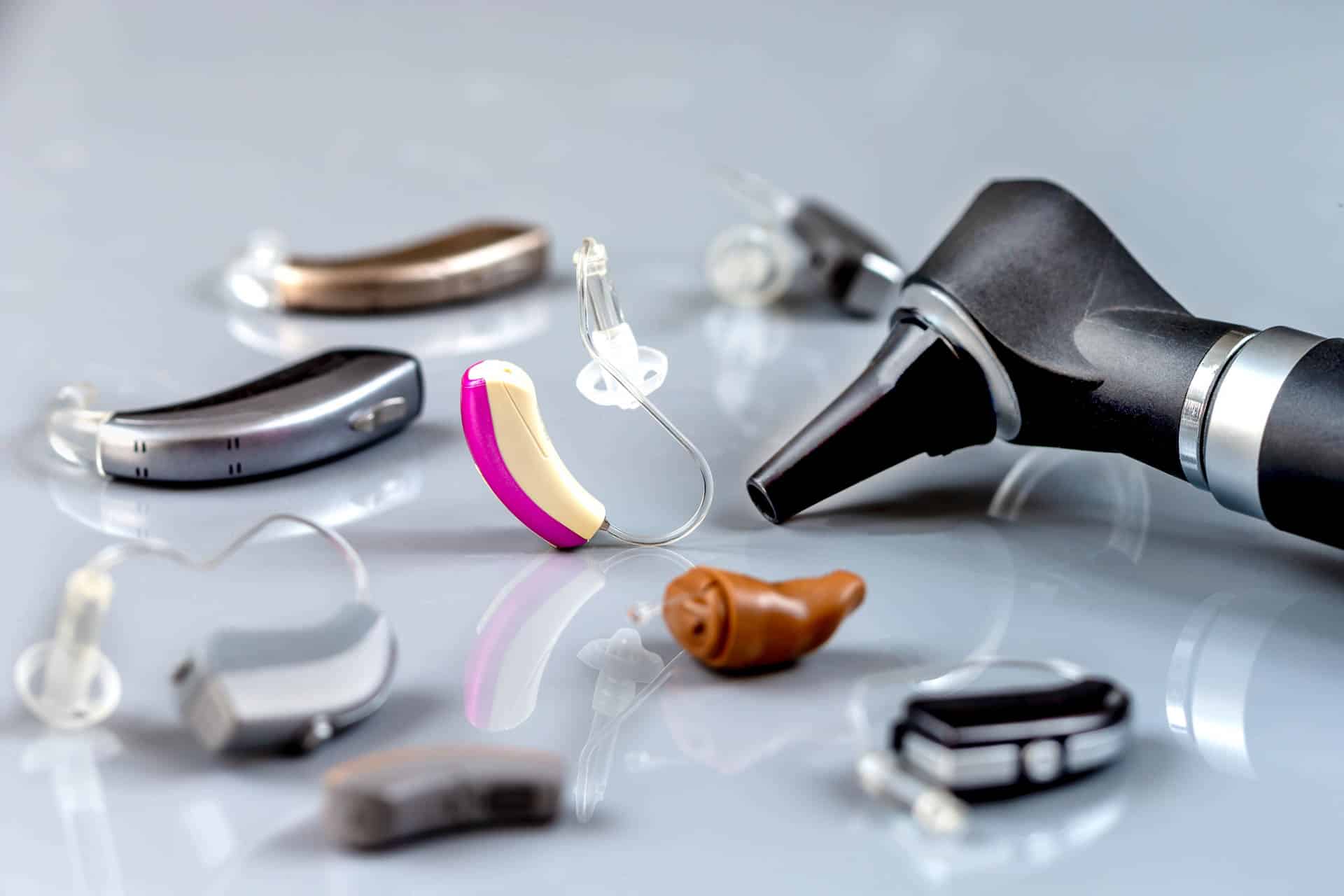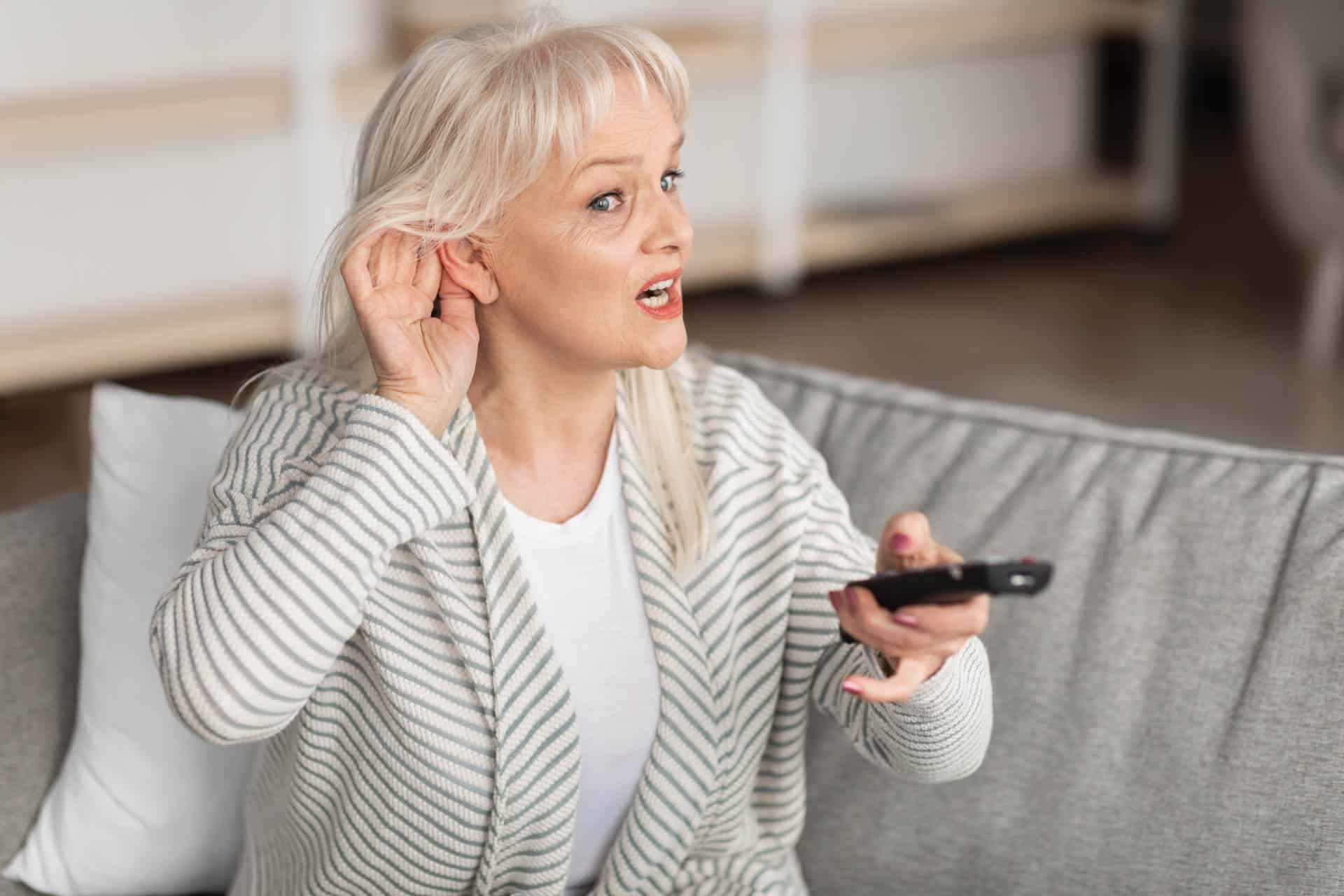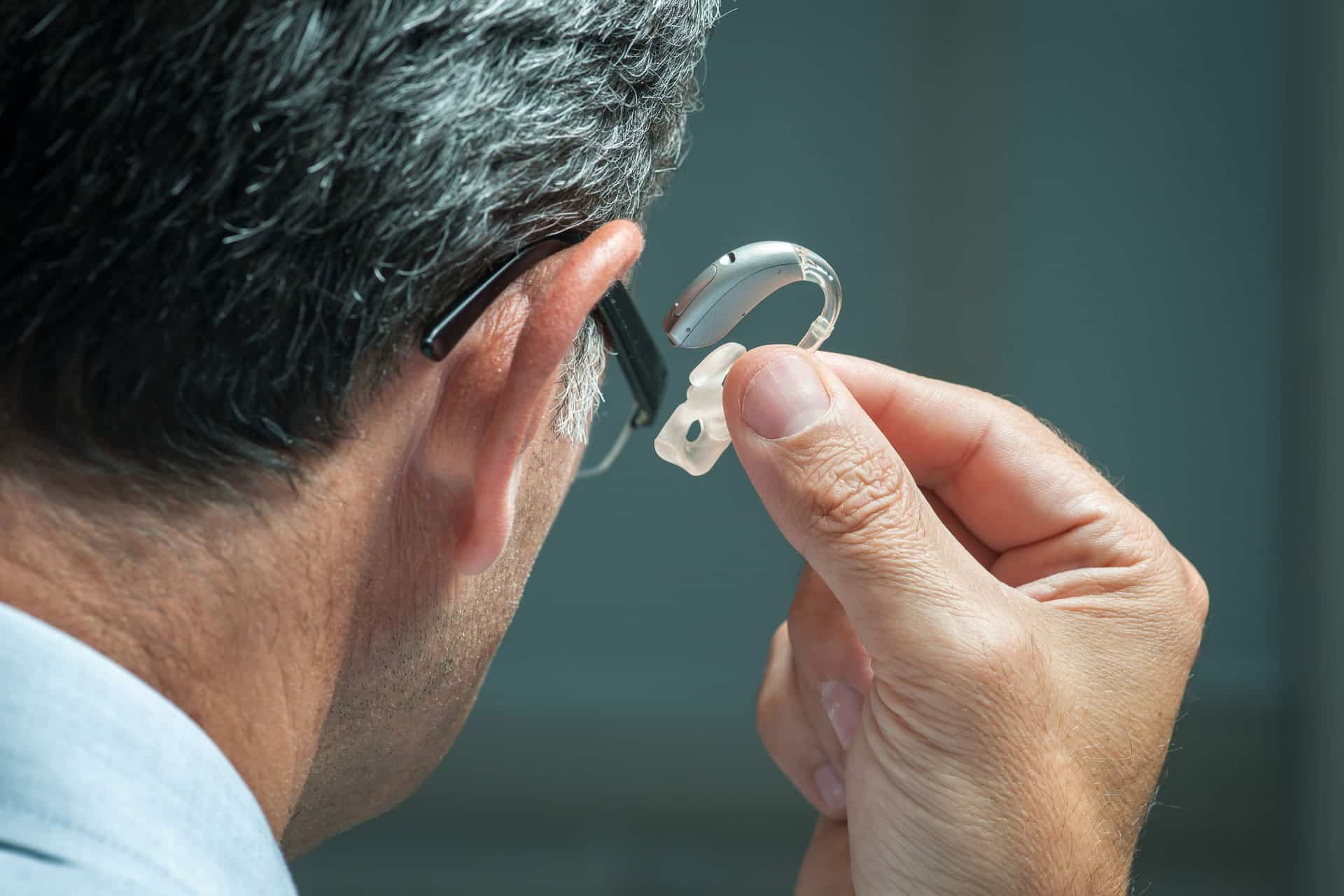Delivery in 2-3 working days
Modern aids and technology for the hearing impaired
At a glance
Hearing aids and how they work
Specialized aids for the everyday life of hearing impaired people
The OSKAR TV audio amplifier
Communication aids for the hearing impaired
Aids and technology for the professional life of hearing impaired people
Advice and support for hearing impaired people and their relatives
FAQ: Frequently asked questions about aids and technology for the hearing impaired

Hearing aids and how they work
Hearing aids are highly developed technical devices that are suitable for a wide range of requirements of hearing impaired and deaf people:
Behind-the-ear (BTE) Hearing aids
These are ideal for a wide range of hearing losses as they are placed directly behind the pinna and effectively conduct sound waves to the cochlea.
In-the-ear (ITE) Hearing aids
Discreet aids that fit directly in the ear and are specially designed for hearing-impaired people who value discretion.
In-the-channel devices (IdK)
These tiny hearing amplifiers lie deep in the ear canal and are therefore ideal for active deaf people and hearing-impaired people who are looking for discreet solutions.
When choosing the right hearing aid, not only the degree of hearing loss and the condition of the cochlea (cochlea) are relevant, but also the wearing comfort and personal preferences. Professional fitting is essential for hearing impaired and deaf people, as only an optimally adjusted hearing aid can provide the greatest benefit.
Hearing aids are highly developed technical devices that are suitable for a wide range of requirements of hearing impaired and deaf people:
Here are some tips:
- Seek professional advice: an audiologist understands the complexity of the cochlea and can make an informed recommendation for hearing impaired and deaf people.
- The proof of the pudding is in the eating: Use trial periods to find out how the hearing aid performs in everyday life.
- Ease of use counts: Choose a hearing aid that is easy to use.
Specialized aids for the everyday life of hearing impaired people
In everyday life, it is the seemingly small things that can present major hurdles for hearing impaired people. Specialized aids such as alarm clocks or vibrating alarm clocks and signaling systems are invaluable in overcoming these:
- Light signaling systems: Such systems are indispensable because they convert sound signals into optical signals. For example, the ringing of a telephone is transformed into eye-catching flashes of light that can also be seen out of the corner of the eye.
- Vibrating alarm clocks and watches: These devices ensure that you can start the day without an audible signal. Vibrating alarm clocks use powerful vibrations, while other alarm clocks use flashes of light to help you wake up.
- Doorbells for the hearing impaired: A combination of light signals and vibration makes it possible to ensure that no doorbell rings are missed. This means that social contacts and important deliveries do not go unnoticed.
- Telephones for the hearing impaired: Telephones for the hearing impaired are designed to improve audibility through amplification and to alert you to calls by means of light flashes or vibrations.
- Smoke detectors for the hearing impaired: In the event of a fire, light signals and vibration units save lives by warning the hearing impaired in good time and enabling them to react quickly.
- TV aids and hearing amplifiers: With special portable TV hearing amplifiers, TV headphones or chin-strap headphones, people with hearing problems can improve the sound of their TV. These devices can transmit the sound directly to the user, minimizing background noise and improving sound quality.
The OSKAR TV audio amplifier
With the OSKAR TV sound amplifier from faller audio, you can easily take the TV sound with you to your listening position. And thanks to special speech optimization, you can also understand the dialogue on TV better again.
Communication aids for the hearing impaired
Effective communication is crucial to gaining a foothold in everyday life and avoiding social isolation. Here are some communication aids that build bridges:
Written interpreter:
These services convert spoken language to text in real time, which is invaluable for lectures, conferences or in the education sector.
Sign language interpreters:
They are vital for communication in sign language and should be available at official events to ensure access to information.
Technical aids:
Apps and devices that transcribe speech or convert text to speech provide enormous support for everyday communication.
Aids and technology for the professional life of hearing impaired people
The professional integration of hearing impaired people requires specific measures and aids:
Adaptations in the workplace:
These include acoustic optimizations and special communication systems that enable equal participation in working life.
Tools for meetings:
Technologies such as induction loop systems or special microphones facilitate participation in meetings and conferences.
Legal support:
Knowledge of rights and funding opportunities is crucial to facilitate and promote professional integration.
Aids for leisure activities and social interaction for hearing impaired people
Leisure activities and social interaction enrich our lives and promote our mental health. Special aids and technologies are essential for hearing impaired people:
- Technology in social environments: Wireless transmission systems make it easier to follow conversations in groups or in noisy environments by transmitting the sound directly into the hearing aid.
- Accessibility in public: Public institutions and event venues are upgrading to be inclusive - for example with induction systems in theaters that transmit sound directly for hearing aid users.
- Adaptations for sports and hobbies: Special headphones for swimming sports or protective housings for hearing aids during sports ensure that your hobby does not become a minor matter.
Advice and support for hearing impaired people and their relatives
Competent advice is essential in order to maintain an overview in the jungle of technologies and aids:



